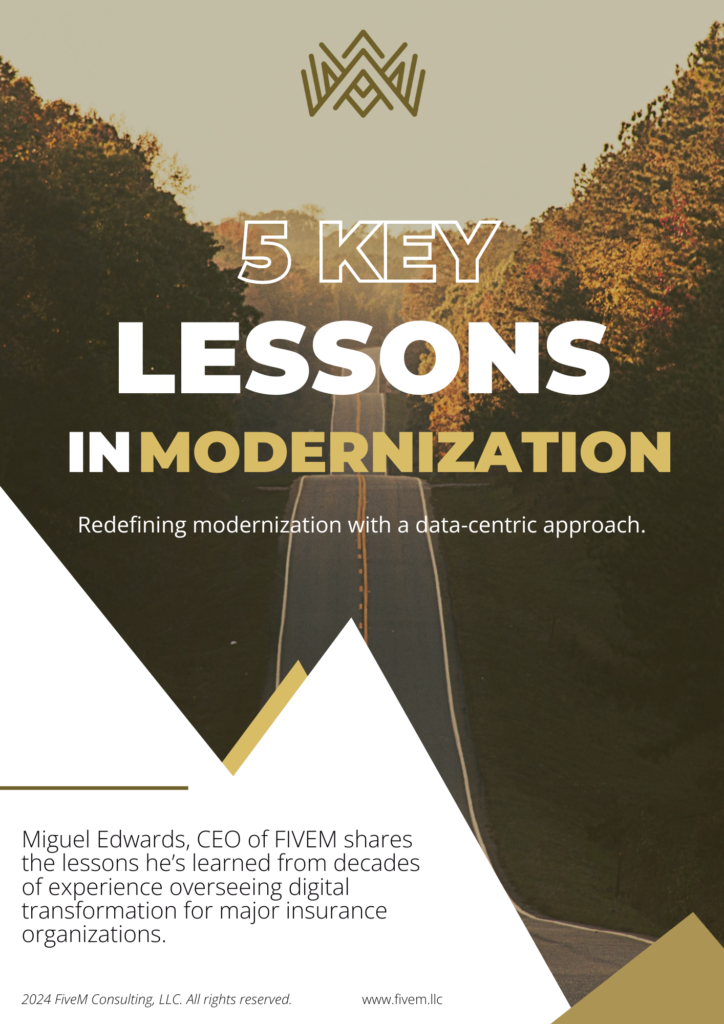The Rise of Agentic AI in Insurance

Agentic AI isn’t just another AI trend — it’s a seismic shift in how the insurance industry thinks, works, and scales. From smarter claims handling to adaptive fraud detection, this next-gen intelligence is already shaking up the rules of engagement. Here’s why Agentic AI isn’t just a buzzword anymore — it’s the new backbone of insurance operations.
Why You’re Not Scaling (and How to Fix It)

Is your insurance company built to scale—or to stall? Most insurers don’t fail because of competition, but due to internal friction. This blog breaks down the top 3 roadblocks to growth in the insurance industry and gives you the blueprint to overcome them for sustainable scaling.
Why Companies Fail at Modernization (And What to Do Instead)

Insurance modernization often leads to bloated budgets, frustrated teams, and complex systems that don’t deliver results. Discover the key mistakes insurers make and a smarter approach to modernization that actually works.
5 Silent Inefficiencies Costing Your Insurance Business Millions

Most insurance executives focus on cutting visible costs, but the real financial drains are often hidden. Siloed data, outdated systems, and misaligned IT strategies quietly erode profitability, slowing down decision-making and innovation.
How to Break Free from the IT Maintenance Trap

IT teams spend 80% of their budgets on maintenance, leaving little room for innovation. Learn how CIOs can eliminate waste, invest in automation, and align IT with business strategy to drive transformation.
From Strategy to Execution: Why Most Companies Fall Short

Most businesses create great strategies, but few successfully execute them. Why? Misalignment, lack of accountability, and shifting priorities often stand in the way. This guide breaks down the common pitfalls and offers practical solutions to turn strategy into action.
Modernization Strategy Failure: Why Most Companies Get It Wrong

Many companies fail at modernization because they treat it as a tech upgrade instead of a strategic initiative. This article explores the biggest pitfalls and provides a roadmap to successful transformation.
Modernizing Insurance Faster with No-Code/Low-Code

Insurance companies face IT bottlenecks and slow modernization. No-Code/Low-Code (NCLC) platforms offer a faster, more efficient way to innovate. But are they the ultimate solution? Learn the benefits, challenges, and best practices of NCLC in the insurance industry.
Redefining Project Success in the Modern Era

Traditional Project Management Offices (PMOs) are losing relevance, prioritizing governance over real business value. Enter the Performance Strategy Office (PSO)—a modern, outcome-driven framework designed for agility, strategic alignment, and measurable impact.
Operational Strategies to Accelerate Results in 2025

As we step into 2025, operational precision is critical for small and medium-sized organizations striving for success. Learn key strategies like process optimization, real-time data integration, and incremental modernization to accelerate business results.

